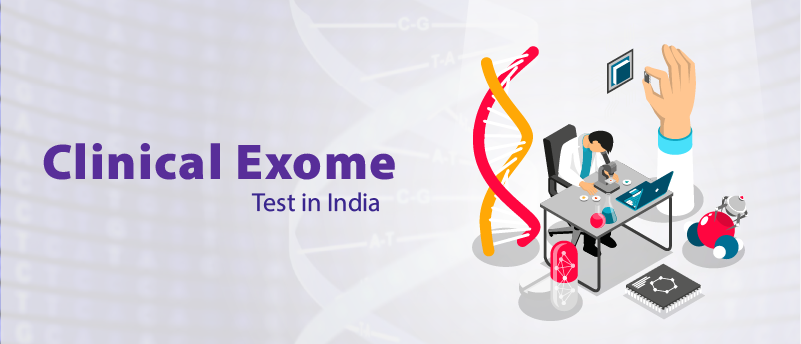Enhanced adoption of WES or clinical whole exome sequencing has already improved the overall diagnostic yield for patients experiencing complicated genetic conditions. But the informatics practices to handle information contained in the reports are in their infancy still.
Genetic sequencing results get transmitted using the portable document format. It may make the secondary examination or data extraction more challenging. So, what exactly is exome sequencing in neurologic disease? Let’s not waste further time elaborating on the term in brief.
An Introduction to Exome Sequencing
It’s a method enabling selective sequencing of the genome’s exotic regions. It’s the transcribed parts of the genome present in the mature mRNA, such as protein-coding sequences & untranslated regions (UTRs).
In human beings, around 180,000 exons are there with a combined length of ~ 30 million base pairs, i.e., 30 Mb. So, the exome represents the human genome’s 1% but gets estimated to harbor around 85% of disease-causing variants.
Exome sequencing in India offers an inexpensive alternative to whole-genome sequencing in the genetic disease’s diagnosis while covering more potential disease-causing variants than genotyping arrays. Studies on clinical pediatric neurology indicate that the exome sequencing expense might never be higher today than conventional genetic testing’s costs.
What do you mean by clinical exome sequencing?
Clinical Exome Sequencing is a test that identifies disease-causing variants of DNA within the genome’s 1% that codes for proteins (exons). Or it flanks regions that code for proteins like splice junctions. The prime objective of the test is to use it in conjunction with clinical presentations & other markers of the disease progression for managing patients with rare genetic disorders.
Although more than 2,000 Mendelian diseases are caused by DNA variants, a few patients suspected or got clinically demonstrated with rare genetic disorders don’t get any molecular diagnosis. That may often be because of genetic heterogeneity and the relative inefficiency of the recent sequencing technology.
Signs indicating that it’s the right time for Clinical Exome testing
Given below are the times when it indicates that you must opt for a clinical exome test in India:
- When the clinical findings or one’s family history is suggestive of the underlying genetic etiology
- When you intend to screen for a genetically heterogeneous disease
- For detecting the undiagnosed genetic disease or diagnostic odyssey in any patient
- For facilitating medical intervention or/and therapies
- For the purpose of confirming the suspected genetic diagnosis
- When you intend to guide reproductive assessment or planning of recurrence risk
- For determining a prognosis (depending on the family history)
How to maximize the overall diagnostic yield in different clinical indications via Whole Exome Sequencing?
In Whole Exome Sequencing, protein-coding regions of genes of human genomes (exome) are sequenced via next-generation sequencing. While the exome comprises 1% of the genome, 85% of disease-causing mutations remain located there.
WES is valuable for identifying new disease genes. In fact, it’s also a powerful method in clinical settings that helps identify the overall molecular basis of the genetic disorders around different medical specialties.
WES’s diagnostic yield happens to be higher than traditional gene diagnostic techniques. Based on medical specialties, a diagnosis may get obtained in around 20%-60%, with early-onset or severe disorders having the highest diagnostic rates.
Who Should Choose WES?
In short, Whole Exome Sequencing benefits patients having:
- A heterogeneous disorder (genetically)
- An unspecific and complex genetic disorder alongside various differential diagnoses
- An unsuccessful genetic testing
- A suspected genetic disorder where the genetic test isn’t available
Exome Sequencing and Clinical Diagnostics
Exome sequencing gets used for diagnosing genetic causes of diseases in patients. Identification of underlying diseases may have potential implications for therapeutic and diagnostic approaches. So, it may guide the prediction of the disease history, thereby making it possible to test the at-risk family members. Different parameters make exome sequencing superior to one gene analysis. And that includes:
- The ability to identify mutations in genes that don’t get tested because of the atypical clinical presentation, and
- An ability to identify certain clinical cases where mutations from several genes lead to phenotypes in a patient
Choose Genes2me for Effective Clinical Exome Sequencing
If a patient suffers from disorders like rare diseases, inherited cancers, and others, Genes2me offers the most excellent process for diagnosis of clinical exome sequencing. The platform is the one-stop genetic testing lab in India. Their prime objective is to introduce a positive change into people’s lives through exemplary services. The lab offers testing services in four significant categories: Personalized Genetic Testing, Genetic Diagnostic, Oncology, and Mother and Child.





